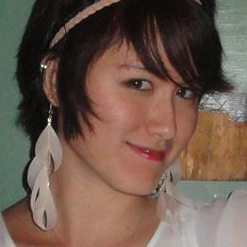
Oklahoma Farming
Don’t give a pet’s name to any animal you plan to eat.
The farm had a few ponds, some forested land and several big fields where oats and grass for hay and grazing were planted. It had a big garden, a long chicken house and a barn with a corral and a stock chute for loading animals into the back of the pickup when it was time to take them to the auction. The barn had a dozen or so cats at any one time, feral and vicious, who lived only on whatever they could catch.
Mom’s parents, Grandad and Granma Brown, ran a family farm of less than a hundred acres. Farmer Brown and the missus were Grant Woods’ American Gothic right down to the pitchfork. They were the genuine article. He drove a black ‘53 Ford pickup with tobacco juice stains streaked down the outside of the driver’s door from trying to spit while driving. To start it, he had to push in the brake and the clutch, turn the key and press the starter button on the dash, all at the same time. The truck’s rubber mat floor was littered with burned up strike-anywhere kitchen matches.
Grandad liked to work a cigar from both directions while he drove, lighting one end and chewing on the other until they met in the middle.
When he wasn’t doing that, he gnawed on a plug of Red Man Chewing Tobacco that lived in the breast pocket of his bib overalls. Sometimes he’d be explaining something to me and his words would trail off into incoherent gurgling as he jutted out his lower jaw and kept his lips almost closed while searching for a socially acceptable place to deposit the loathsome wad of dark brown spit growing in his cheeks.
Grandad gave me my first-ever drink of beer. It was Pabst Blue Ribbon, and it came in a can cold as a witch’s rack, fished out of a tall metal milk can filled with ice water that sat on my side of the stick shift. Be assured this wasn’t the wholesale corruption of a minor, just an infrequent sip now and then from the one he was drinking as we cruised along at his customary eight miles an hour on gravel roads maintained by a county grader. And anyway, it wasn’t like I was a baby. Hell, I was ten.
The summer of 1960 was still within the era of “protected innocence” for children. There were fewer lawyers than today, and nobody I knew had ever even seen a seatbelt.
The farm is forever July in my mind, because with few exceptions, I spent only my summers there. Except for when I consciously force myself to think otherwise, Oklahoma has blackberries and wasps all year around.
It was right here on this very farm in the summer of my ninth year, that one of life’s pivotal realizations marched into my awareness. We were down by the barn one morning when we saw a heifer mount the back of another heifer and start humping away. (A heifer, by the way, is a girl cow, just to make sure we’re all on the same page.) Grandad explained that when two heifers go at it like that, it means the cows are in heat and ready to be mated. In fact, that was the signal he relied on for knowing when it was time to make a phone call to the breeder and put Mr. Bull into the game.
The huge Black Angus bull glowered at me, smoldering behind the bars of the breeder’s large trailer. I briefly considered reaching in and petting him, making friends. I walked up close to the trailer and he snorted, stamped his foot and made a sudden feint at the bars. I jumped.
“Be careful, son. He’d kill you if he could,” the man from the breeder’s association said.
Reading my mind, Grandad cautioned, “Don’t put your hand in there. He’ll snap it off like new beans.” He made a garden green beans snapping motion.
I could see he would, too. Then just as suddenly, the bull was no longer thinking about me. The breeze had shifted and he caught the scent of the heifers. He turned his gaze toward the corral and any notion of crushing me under his hooves was now a million miles away.
The breeder maneuvered the trailer to make it flush with the corral gate. “You better go sit on the fence, son,” the breeder said. “We’re gonna let Duke out and you don’t want to be there if he gets loose on us.” I scampered up onto the illusionary safety of the wood rail fence, and the breeder pulled a rope that raised the rear gate on the trailer. As Duke backed into the corral, his manhood was all business. This was getting really interesting.
The bull weighed at least a ton and the mating act looked like one giant eighteen-wheeler truck climbing atop another.
They were only five feet away from me as I sat on the fence and the whole scene was gigantic, way out of proportion to any other experience. It was the first time I ever saw living beings making babies. These were giants, with giant parts and giant pushing and giant snorting and grunting. As Duke lurched forward on his hind legs to better his position, the ground shook.
I realize now that the original humans, Adam and Eve must have received their first sex education from examples in nature. I was an innocent in Eden, and this was the atomic bomb of examples. Granddad must have noticed my wide eyes and mouth hanging open. He hocked a wad of tobacco juice at an anthill, wiped his chin with the back of his hand and commented, “You’ll be doin’ that too ‘fore very long.” I was stunned, and you would be shocked to know all the things that passed through my mind.
In addition to baby-making, I guess there was one other adult thing of which I was becoming aware is the reality of farming. This was a no-nonsense working farm and Granddad forbade us to give a pet’s name to any animal that would eventually be slaughtered for food. We even spotted, and shot at, a coyote now and then who we had named Lamb Chops (because he chopped lambs). But most especially we were forbidden to name chickens. They were simply too stupid to have names, and anyway, every one of them ended up as food. And besides, you can even tell them apart.
But I could, and named some of them anyway, Dagwood and Blondie and Snuffy Smith and Tonto and Cherokee and Choctaw. I came home from school one afternoon and saw all of them in a cage on the tailgate of the pickup, ready to go to market. I cried under the covers that night, paying the price for clandestine chicken-naming.
I had a calf named Maverick (also technically a violation of the no-naming rule), I purchased for $20 at birth. Maverick was an Angus-Holstein mix, and was both my 4-H Club project, and best friend, in the fifth grade. I talked to him and read the Hardy Boys to him. He ran down to the creek when he heard me practicing my clarinet there.
In the back of my mind I knew that one day we would twist their tails and push Maverick and his brother Little Britches up the loading chute and into the back of the pickup truck for the ride to the stock auction in Joplin. I knew we would sit in the stands with the other farmers and meat packer reps, awaiting our turn when our guys would be run out into the small arena and the auctioneer would crank up his stuttery jabber, find the highest bidder, and Maverick would prodded out the exit, happily, stupidly, on his way to Jimmy Dean’s Country Smoked Heat-n-Serve Links.
It would happen and I knew better than to dwell on it. To do so would be in bad faith with the pact that has always existed between farmers and the earth, perhaps the second oldest covenant in human history, next to don’t eat the apple. Farming is the original Plan B, mankind’s first contingency arrangement after getting the boot from Eden.
It’s hard work and you’re always poor. Working the land makes you old, destroys your body, and farmers don’t do it out of some sense of romance.
I never heard a farmer speak of any special reverence they felt for the animals. A conversation about it would probably embarrass most of them. But the respect is clearly evident in the way that nothing is ever taken for granted; nothing is wasted.
The partnership is that God created the plants and animals, and sends a little rain now and then if He don’t mind, and we are the custodians of creation. We plant grain and propagate the herd; we harvest and butcher, and we eat. We give our children their role in the cycle, as well as their freedom to choose another path altogether. Finally, everything goes back to the earth, including the farmer’s bones.
When Maverick was a yearling and ready for the auction, he and Little Britches and the gang were grazing in the south pasture. One of “Tornado Alley’s” famous instant thunderstorms sprang up that afternoon and a bolt of lightning shot down and killed Maverick in a split second.
You pour all your energy and resources into raising crops, a family, cattle – cutting all kinds of deals with the angels and the weatherman. And then God takes him out in one stroke. You look at it philosophically and you pick up the pieces. You make do, you deal with it, and you don’t give up because there’s no place else to go but the grave or the old folk’s home. That’s farming.
Larry Moffitt
Jan 01, 2014















